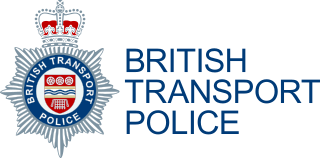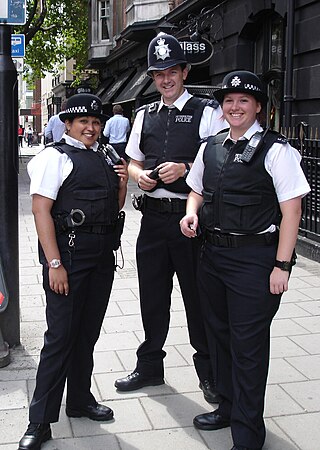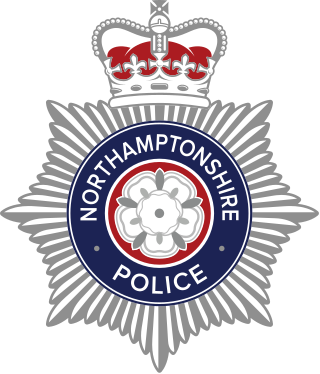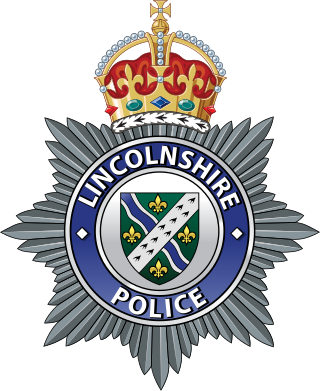Powers
A chief constable may grant some or all of the following powers to an accredited person as part of a community safety accreditation scheme: [3]
- The power to:
- require the name and address of a person who has committed a criminal offence that causes injury, alarm and distress to another person or damage or loss of someone else's property, or to whom a penalty notice has been issued;
- require the name and address of a person acting in an anti-social manner;
- require a person to stop drinking in a designated public place and confiscate and dispose of alcohol being consumed in a designated place;
- confiscate alcohol from young people;
- confiscate cigarettes and tobacco products from young people;
- require the removal of abandoned vehicles;
- stop cyclists on suspicion of riding on a footpath;
- stop a vehicle for the purposes of an inspection;
- control traffic for the purpose of escorting abnormal loads, for the purpose of conducting a traffic survey, and for other purposes
- The power to issue a fixed penalty notice:
- The power to issue a penalty notice for disorder for:
- the sale of alcohol to person aged under 18;
- buying or attempting to buy alcohol for consumption by a person aged under 18;
- consumption of alcohol by a person aged under 18 or allowing such consumption;
- delivery of alcohol to a person aged under 18 or allowing such delivery;
- possession by a person aged under 18 of an adult firework;
- wasting police time or giving a false report;
- behaviour likely to cause harassment, alarm or distress;
The powers available to individuals accredited under a community safety accreditation scheme are similar to those of a police community support officer (PCSO), although PCSOs are designated with powers by the chief constable, as opposed to being accredited with them as non-employees.
The Act also makes it a criminal offence to assault, resist or obstruct an accredited person in the execution of their duty, or impersonate an accredited person.
Requirements for accreditation
A person accredited under a community safety accreditation scheme has to be assessed as suitable to exercise the powers, trained by an Association of Chief Police Officers (ACPO) approved provider in their use, and vetted to a national standard. The Act also requires that the organisation employing an accredited person must be 'fit and proper' and that they must have a satisfactory complaints procedure in place. [4]
An accredited person remains under the control of their normal employer, and is not managed or tasked by the police force. Some accredited persons are tasked by their respective police force to conduct patrols, attend incidents and gather intel, such as the community protection officers of Nottingham City Council who work with Nottinghamshire Police. These officers carry police Airwave radios and are dispatched to incidents by the force control room.
Accredited Persons must wear a uniform approved by the police when exercising their powers, and carry an ID card which also shows the powers they are authorised to use. Some forces print the powers on the back of the ID card, while others give the employees a separate powers card specifically for this.

British Transport Police is a national special police force that polices the railway network of England, Wales and Scotland. The force polices more than 10,000 miles of track and more than 3,000 stations and depots.

Law enforcement in the United Kingdom is organised separately in each of the legal systems of the United Kingdom: England and Wales, Scotland, and Northern Ireland. Most law enforcement duties are carried out by those who hold the office of police constable of a territorial police force.
A Police Community Support Officer, or as written in legislation Community Support Officer, is a uniformed member of police staff in England and Wales, a role created by Section 38(2) of the Police Reform Act 2002, which was given Royal Assent by Queen Elizabeth II on 24 July 2002. They are not warranted, but hold a variety of police powers and the power of a constable in various instances by the forty-three territorial police forces in England and Wales and the British Transport Police.
Police ranks are a system of hierarchical relationships in police organisations. The rank system defines authority and responsibility in a police organisation, and affects the culture within the police force. Usually, uniforms denote the bearer's rank by particular insignia affixed to the uniforms.

A parking enforcement officer (PEO), traffic warden, parking inspector/parking officer, or civil enforcement officer is a member of a traffic control agency, local government, or police force who issues tickets for parking violations. The term parking attendant is sometimes considered a synonym but sometimes used to refer to the different profession of parking lot attendant.
A warrant card is proof of identification and authority carried by police officers and some other law enforcement officers including immigration officers and Approved Mental Health Professionals. The term is normally used only within the United Kingdom and in current and former Commonwealth countries. Many other countries refer to their equivalent of warrant cards simply as police credentials, commission books, or identification cards. In the UK MI5 officers also have warrant cards. Specially trained mental health practitioners called Approved Mental Health Professional are also warranted council officers and carry warrant cards when acting under the Mental Health Act 1983.
A law enforcement officer (LEO), or peace officer in North American English, is a public-sector or private-sector employee whose duties primarily involve the enforcement of laws, protecting life & property, keeping the peace, and other public safety related duties. Law enforcement officers are designated certain powers & authority by law to allow them to carry out their responsibilities.

Vehicle and Operator Services Agency (VOSA) was an executive agency granted trading fund status in the United Kingdom sponsored by the Department for Transport of the United Kingdom Government.

Northamptonshire Police is the territorial police force responsible for policing the county of Northamptonshire in the East Midlands of England, in the United Kingdom.

Lincolnshire Police is the territorial police force covering the non-metropolitan county of Lincolnshire in the East Midlands of England. Despite the name, the force's area does not include North East Lincolnshire and North Lincolnshire, which are covered by Humberside Police instead.

Wandsworth Parks and Events Police is a Wandsworth Borough Council service responsible for the routine patrolling of the parks, commons, and open spaces within the London Borough of Wandsworth, which has more green spaces than any other inner London borough. It also enforces byelaws, dog control orders, and other park regulations, and provides policing for special events. Its lineage may be traced to a 1984 foundation, although the present body dates from 2012, and was rebranded in 2015 with its current name and responsibilities.

The Police Act 1964 (c.48) was an act of the Parliament of the United Kingdom that updated the legislation governing police forces in England and Wales, constituted new police authorities, gave the Home Secretary new powers to supervise local constabularies, and allowed for the amalgamation of existing forces into more efficient units.

The Police Reform Act 2002 is an Act of the Parliament of the United Kingdom.
A civil enforcement officer is a person employed to enforce parking, traffic and other restrictions and laws.
A street warden is someone who patrols the streets in order to aid the police at a community level. Examples include the Red Caps of London.
The powers of the police in Scotland, as with much of Scots law, are based on mixed elements of statute law and common law.
The powers of the police in England and Wales are defined largely by statute law, with the main sources of power being the Police and Criminal Evidence Act 1984 and the Police Act 1996. This article covers the powers of police officers of territorial police forces only, but a police officer in one of the UK's special police forces can utilise extended jurisdiction powers outside of their normal jurisdiction in certain defined situations as set out in statute. In law, police powers are given to constables. All police officers in England and Wales are "constables" in law whatever their rank. Certain police powers are also available to a limited extent to police community support officers and other non warranted positions such as police civilian investigators or designated detention officers employed by some police forces even though they are not constables.
Birmingham Market Police is a defunct police force of the United Kingdom which existed between 1883 and 1976, and was formerly under the control of Birmingham Corporation where it was responsible for policing the markets controlled by the corporation. Constables of the market police were attested under section 104 of the Birmingham Corporation (Consolidation) Act 1883 which gave them the same powers and privileges as borough constables appointed under the Municipal Corporations Act 1882, but the part of the 1882 act that related to borough constables had been completely repealed by 1976 and therefore such constables no longer enjoy any powers.

The Driver and Vehicle Standards Agency (DVSA) is an executive agency of the UK Department for Transport (DfT).









